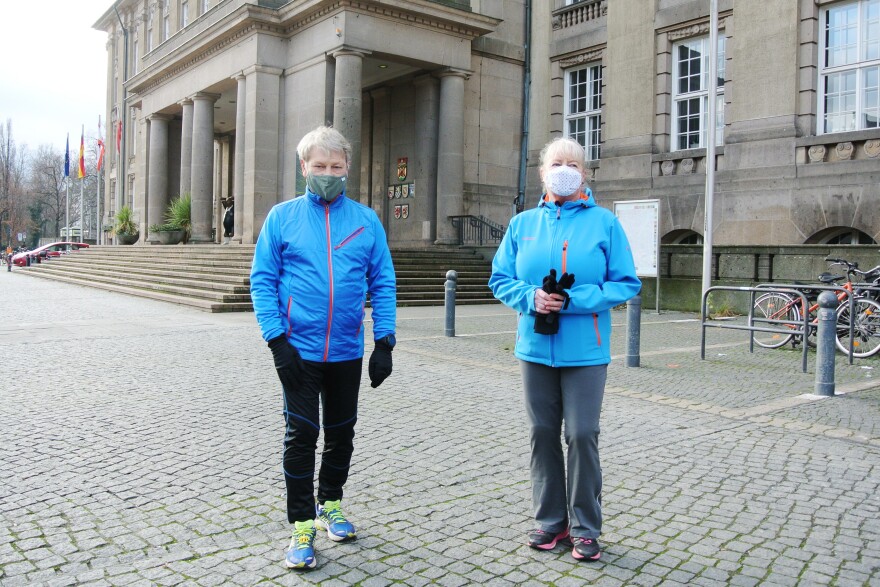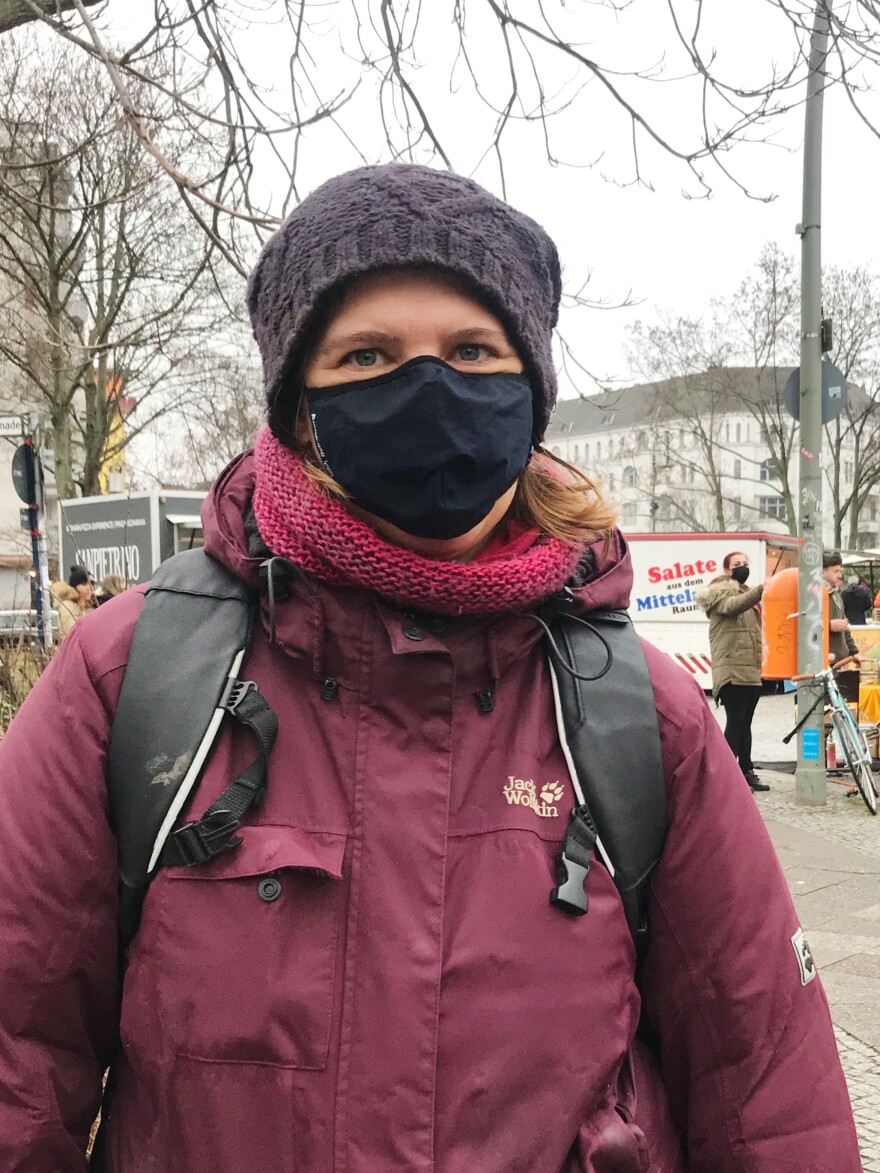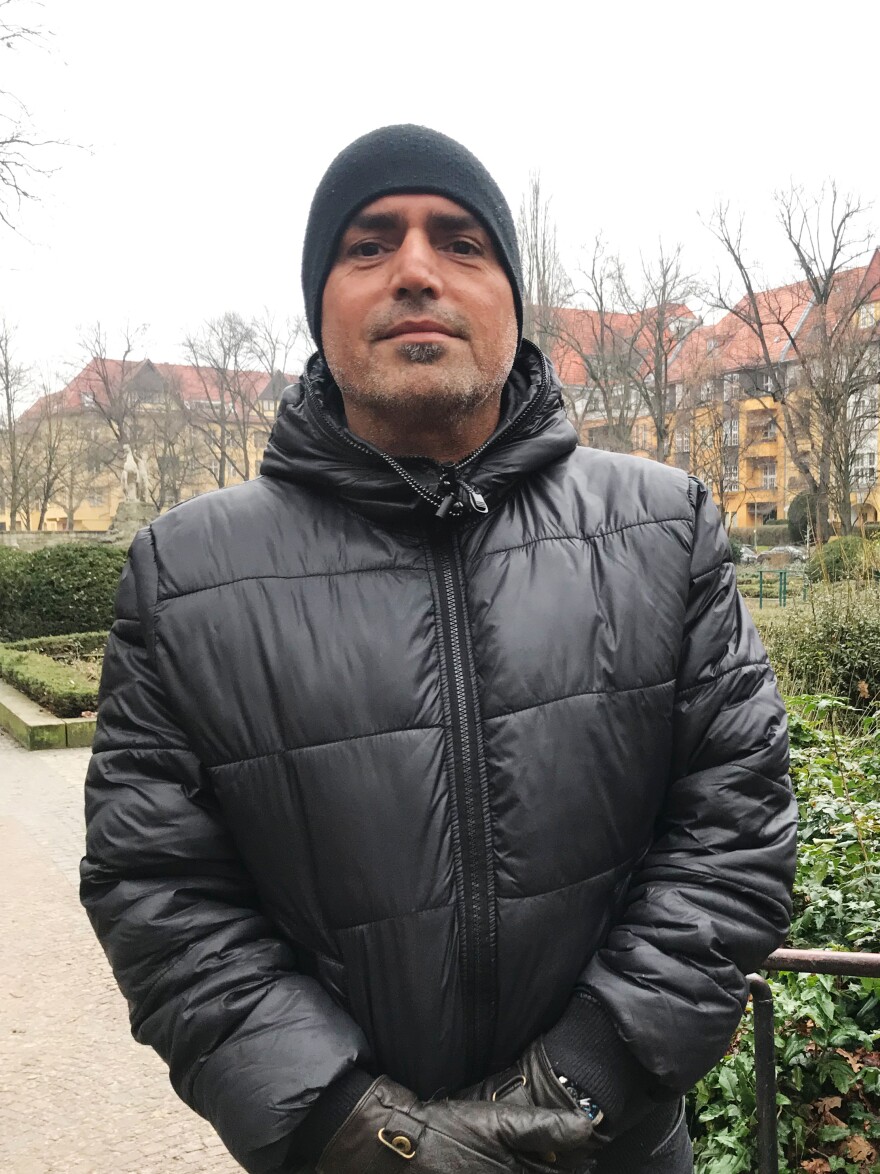Every day at noon, Berliners are reminded of the American ideals of freedom and democracy as the Freedom Bell rings out from a tower of the government building where U.S. President John F. Kennedy gave his famous "Ich bin ein Berliner" speech in 1963.
Modeled on Philadelphia's Liberty Bell, the 10-ton bronze bell arrived in 1950 as a gift from the National Committee for a Free Europe to the people of what was then West Berlin.
At the beginning of the Cold War, it served as a symbol of U.S. solidarity, a sentiment already shown in the years following World War II with the Berlin airlift and the United States' Marshall Plan aid funds.
Even today, many of those who remember the Second World War and those born after hold an appreciation for the legacy of America's commitment to West Berlin. So last week's violent insurrection at the U.S. Capitol in Washington, D.C., has particularly shocked those who grew up in West Berlin's American sector.
German politicians have condemned the Capitol siege and President Trump's role behind the actions, which U.S. Democratic House members charge as "incitement of insurrection." Over the weekend, Foreign Minister Heiko Maas called for a "joint Marshall Plan for democracy" and warned that "without democracy in the U.S., [there is] no democracy in Europe."
Jürgen Siegismund, a 63-year-old retiree, agrees with Maas, although he's not so sure about naming it after George Marshall's European recovery plan. He says he was appalled by the events in Washington last week. "Trump has created a huge chasm in American society, and it is a threat to U.S. democracy," he says.

Siegismund is waiting for a friend on the steps of Berlin's Rathaus Schöneberg borough hall, home of the Freedom Bell, in a public square called John-F.-Kennedy-Platz. As the bell tolls, he thinks about its meaning and how he felt growing up in West Berlin's American sector. "The commitment of the Americans to West Berlin was always very clear and strong, and their notion of liberty is something that shaped me from an early age," he says.
Siegismund's friend arrives ready for their Sunday stroll in the nearby park. Martina Pachaly, 59, works in the energy sector and describes herself as an "Urberliner" — not only was she born in the city, but her parents were too. Her mother was 11 years old during the Berlin airlift and remembers waiting for the U.S. "Candy Bomber" to drop sweets to the starving kids below.
Pachaly says the news footage from the Capitol siege looked like scenes from a civil war and not like the democracy she has always understood the U.S. to be. "I also grew up in West Berlin's American sector, and it was a very positive experience. You always had a good feeling with the Americans," Pachaly says.
Pointing to Kennedy-Platz, Pachaly says it will always symbolize freedom for her. Her mother was at the square when Kennedy spoke, and Pachaly came here shortly after the Berlin Wall fell in 1989, when politicians gathered to give speeches about freedom and democracy.

Clara Rienits, a 44-year-old high school teacher, was also born in West Berlin. Her father held a seat in the Schöneberg hall when it housed West Berlin's government. Rienits teaches politics and has been discussing the events of last week with her students via Zoom. She says that Germans know better than most what the demise of democracy means.
"I always tell my students that we have to learn how to live and participate in a democracy again and again," Rienits says. "Everyone must be given the right, the space and the time to participate. If democracy becomes so gridlocked within its own structures that you can only play along but not take part, then you must question the strength of that democracy."
Rienits says she learned about political participation initially from her parents, who were part of the 1968 West Berlin student protest movement. They denounced the U.S. war in Vietnam and stood up to their own parents' generation, asking what they did during World War II, heralding Germany's long-term reckoning with its Nazi past.
Rienits says this reckoning with the past instructs how she views the present, adding that Germans have as much reason as the United States to be concerned about the rise in far-right extremism.
Walking his dog nearby, 55-year-old Pejram Tahmasbi agrees that political participation is essential, adding that it doesn't now fall upon President-elect Joe Biden alone to fix the reasons behind the deep divisions within society. "Americans need to be politically more active," says Tahmasbi, a small-business owner. "They need to open up and switch on their minds."

Tahmasbi was born in Iran and came to then-West Berlin as a teenager in 1985, after claiming asylum near Nuremberg in what was then West Germany. He used to play basketball with U.S. military officers' children, who used to sneak him into the canteen at the nearby barracks where their parents were stationed. The memory of the welcome he received as a refugee from the military kids has remained with him.
He was enamored by the ideals of American freedom at the time, he says. But in light of the mess he believes the U.S. has created in the Middle East, he adds, he has become more cynical of such ideals.
Still, watching recent events unfold in the U.S. has been painful, Tahmasbi says. He argues that "a nasty mix of narcissism and racism is leading to fascism and endangers the future of America."
Seventy-one-year-old retired architect Richard Hühner, also walking his dog in the park, believes Trump incited the insurrection in Washington, which he says is "unacceptable."
He points out that in August, far-right protesters also attempted to storm Germany's parliament in Berlin, the Bundestag. "I simply don't understand what's going on in the heads of these people. Germany should have learned its lesson by now," he says.
He worries about knock-on effects that the U.S. events could have on Europe, a concern that former U.S. Ambassador to Germany John Kornblum says is not uncommon. "Europeans, especially Germans, draw much of their economic and cultural energy from the United States," he says.
Like many German politicians looking forward to the Biden administration, Kornblum sees reason for hope and believes trans-Atlantic ties remain strong, despite damage caused by Trump. "U.S.-European relations are actually quite good," says Kornblum, who served as ambassador in Berlin from 1997 to 2001. "The coronavirus has of course thrown everything off course, but cooperation between German and American societies, even after Trump, has hardly been better."
On the other side of the park next to the Schöneberg hall, the neon letters "RIAS" light up a large, curved 1930s building. The initials stand for Radio in the American Sector, a German-language station — under U.S. control — that officially aired in West Germany but also reached East Germany, despite the latter's attempts to jam the frequency. RIAS' jingle went "Eine freie Stimme in der freien Welt" — "A free voice in the free world." And every Sunday, the station would broadcast the two-minute peal of the Freedom Bell.
RIAS went off the air in 1993 as the Cold War ended. The German public broadcaster that moved into its studios, Deutschlandradio, has continued the tradition, issuing a weekly reminder of a hard-fought freedom across Germany.
Copyright 2021 NPR. To see more, visit https://www.npr.org.

